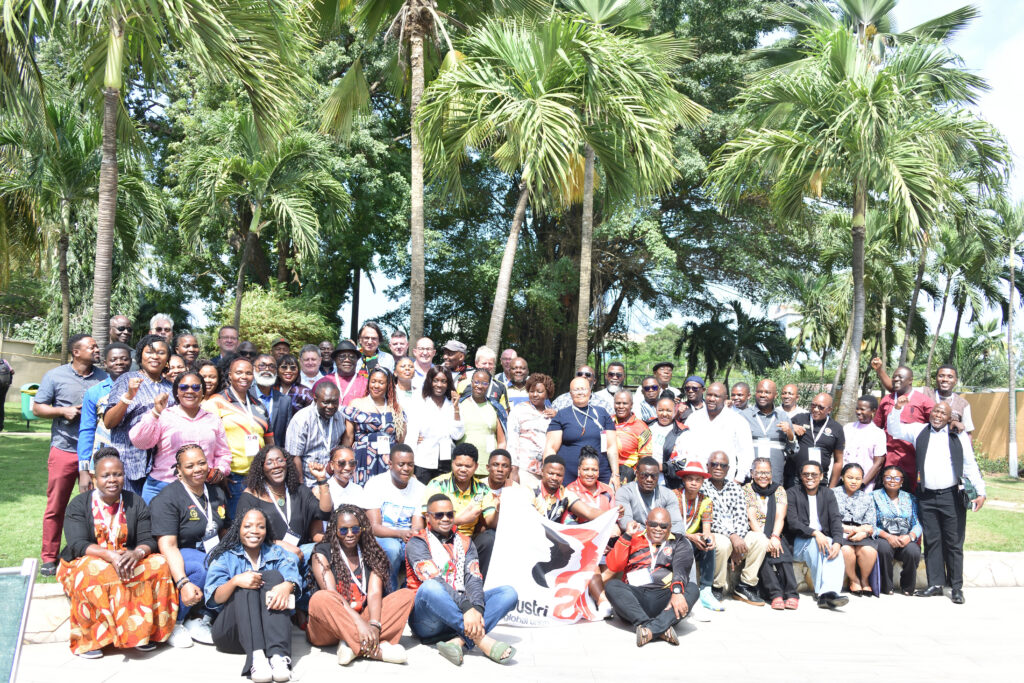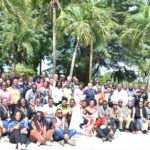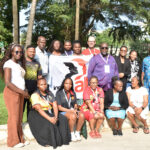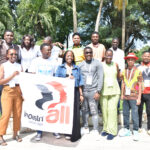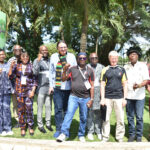17 September, 2025As Africa’s critical minerals power the global energy transition, trade unions are pressing for human rights due diligence (HRDD) to ensure that workers benefit from the continent’s rich mineral resources. At a conference in Accra, Ghana, on 2-3 September 2025, hosted by IndustriALL Global Union Sub-Saharan Africa (SSA) regional office, 90 delegates from 15 countries including trade union leaders, partners and other stakeholders gathered to align global HRDD standards with African realities.
The theme of the conference: “Promoting human rights and responsible business conduct in the world of work: from Global Frameworks to African realities” resonated well with other meetings that week which included the regional executive, women, youth and textile and garment network meetings and underscored the need for robust frameworks to safeguard labour amid the African Continental Free Trade Area’s transformative push.
The conference aimed to deepen understanding of HRDD and responsible business conduct, strengthen trade union capacity to monitor workers and human rights risks and advocate for national and sectoral HRDD frameworks. With Africa’s mineral wealth central to the energy transition, delegates stressed that HRDD is vital to prevent exploitation while advancing sustainable development, aligning with the African Union’s Agenda 2063 and the African Mining Vision.
The Democratic Republic of Congo’s (DRC) cobalt supply chain, which account for over 70 per cent of mined cobalt globally according to the World Bank, took centre stage. Theodore Kamwimbi of the University of Western Cape’s Centre for Transformative Regulation of Work called for stringent monitoring and remedies, particularly for youth and women in artisanal mining and to end child labour.
Davidzo Muchawaya, IRMA’s Africa Lead, detailed the audit of Chinese firm, Tenke Fungurume Mining in the DRC, noting concerns over transparency and health and safety. IRMA’s safeguards, including off-site interviews and the first-ever audit of a Chinese DRC site was hailed as step towards compliance and accountability.
Global models like the EU’s Corporate Sustainability Due Diligence Directive and Germany’s Supply Chain Act were discussed. Judith Kirton-Darling of industriAll Europe called the EU framework a “blueprint for balancing corporate duties with worker remedies,” while Alexander Nolte of Germany’s IGBCE highlighted the German law’s transparency mechanisms as a guide for African states navigating global trade.
Union strategies drew inspiration. For example, Grahame Kelly general secretary of Australia’s Mining and Energy Union shared tactics like leveraging pension funds, prompting the conference to explore Australia-Africa HRDD trade union collaboration.
IndustriALL mining director, Glen Mpufane, warned that without HRDD, “Africa risks becoming a conduit for exploitative labour practices.” He emphasized HRDD role in organizing workers in critical minerals like cobalt and lithium, where labour abuses in Sub-Saharan Africa have drawn scrutiny. The conference highlighted HRDD’s urgency in textiles and garments industries which are facing fast fashion’s race to the bottom and emphasized that advocating for gender-sensitive protection for women workers is key.
Practical tools were an important focus. Kemal Özkan, IndustriALL assistant general secretary, said the HRDD Competence Centre, set for a 2026 launch, in which UNI Global and IndustriALL are in partnership, will support HRDD in mining and textiles. Miriam Neale, interim director, outlined training to bolster union capacity, though delegates raised concerns about sustainability and reaching shop-floor workers. Calls emerged to shift voluntary global frameworks to binding ones. A regional mapping tool, which enables unions to track violations, including gender-specific risks and a panel discussion on how national action plans on business and human rights were being implemented in Ghana, Kenya and Uganda discussed strategies.
IndustriALL general secretary, Atle Høie, said:
“Africa must forge HRDD pathways rooted in local realities and global best practices,”
urging unions to hold corporations accountable.
